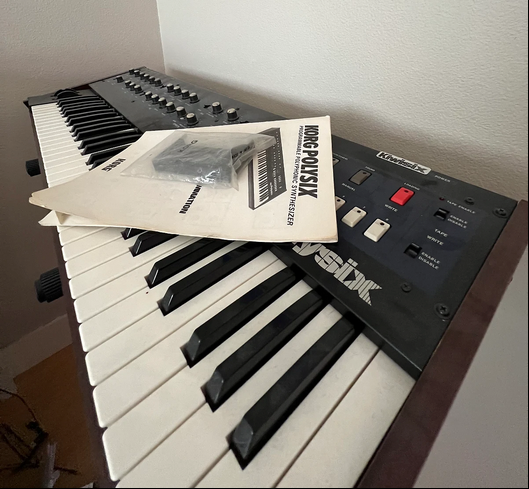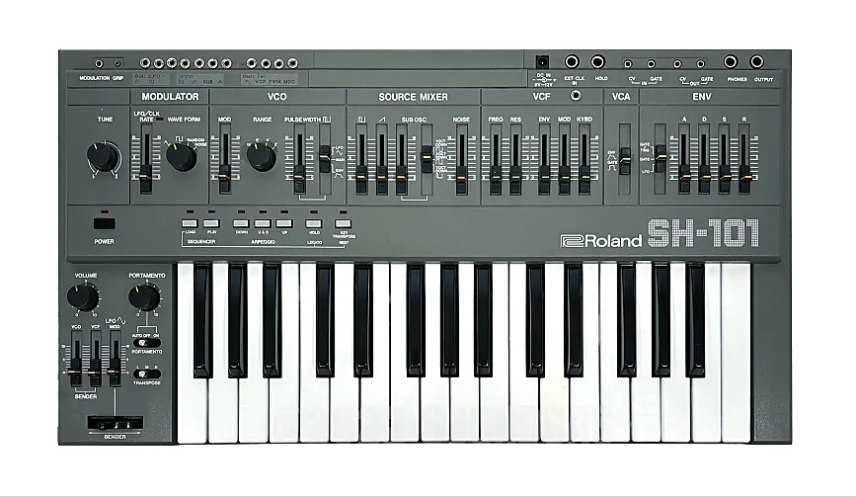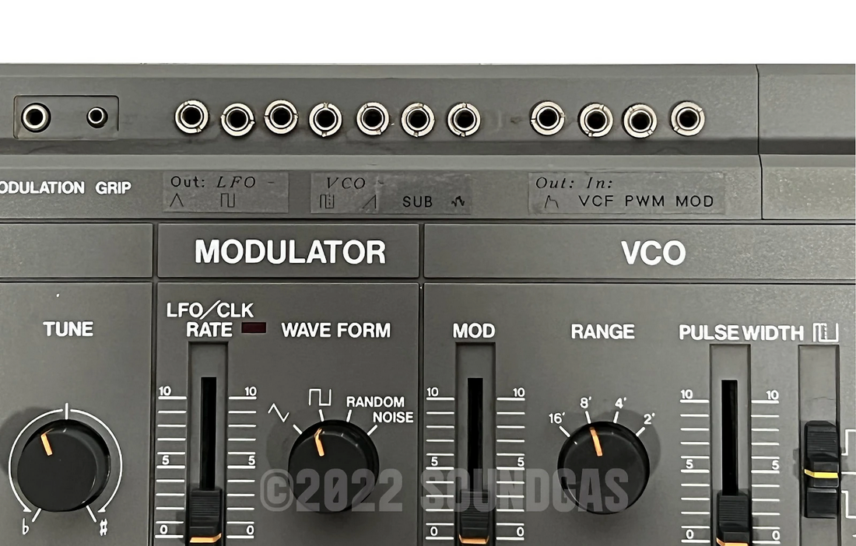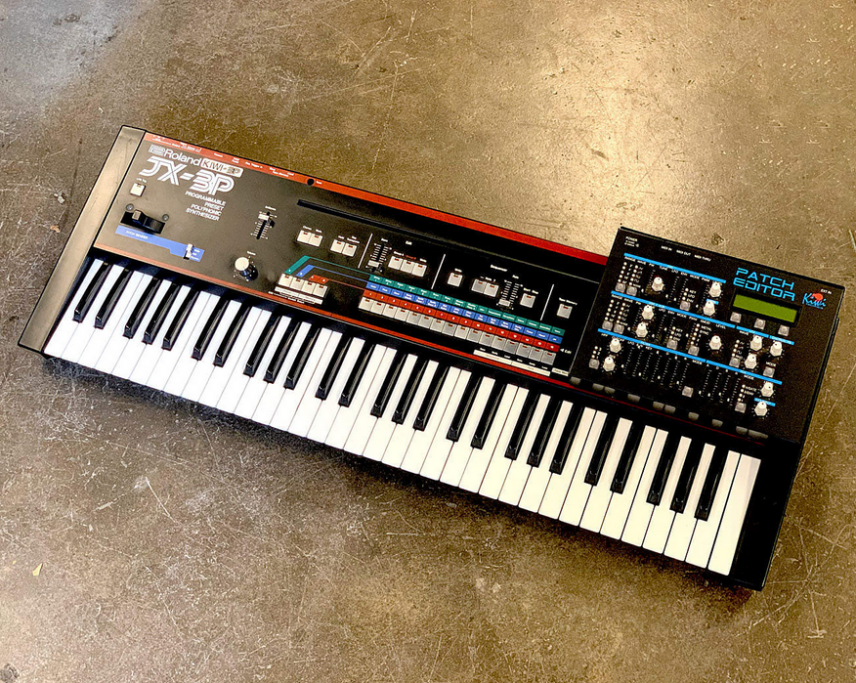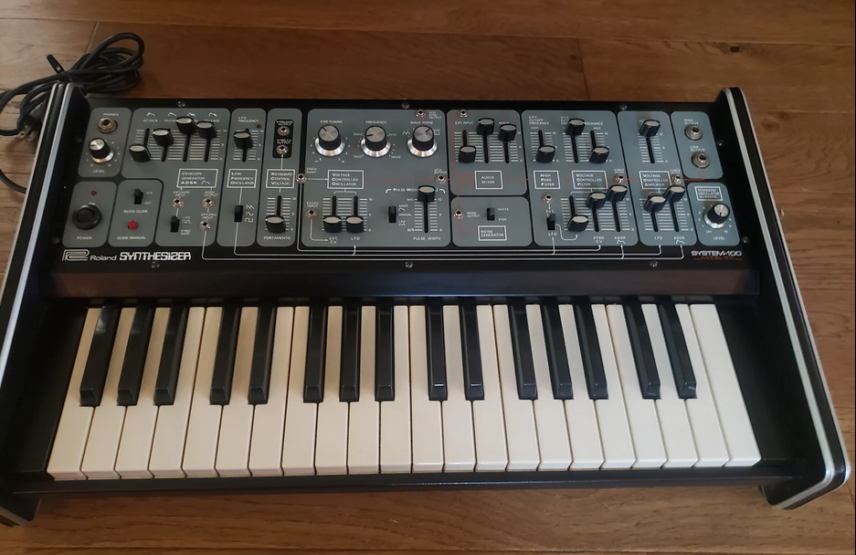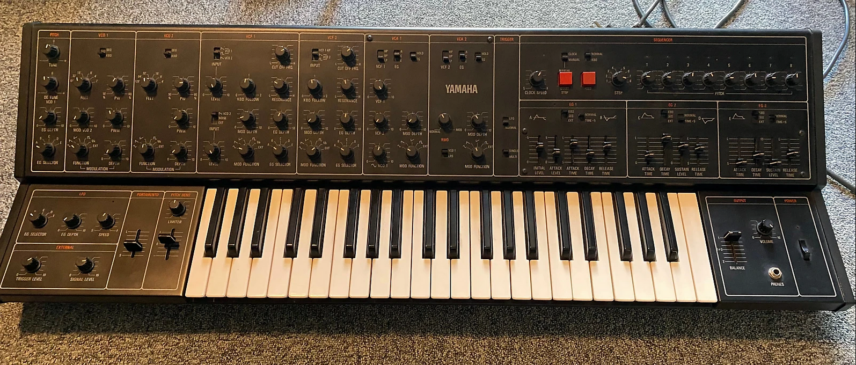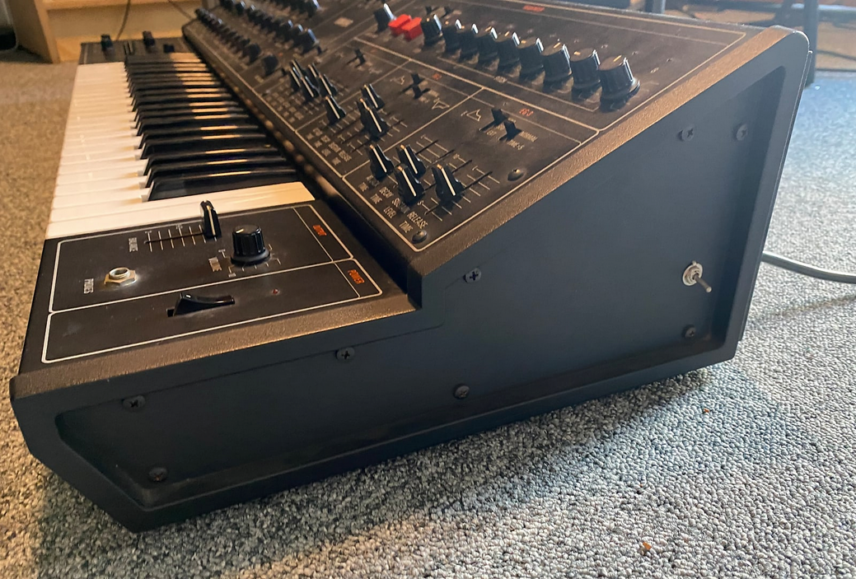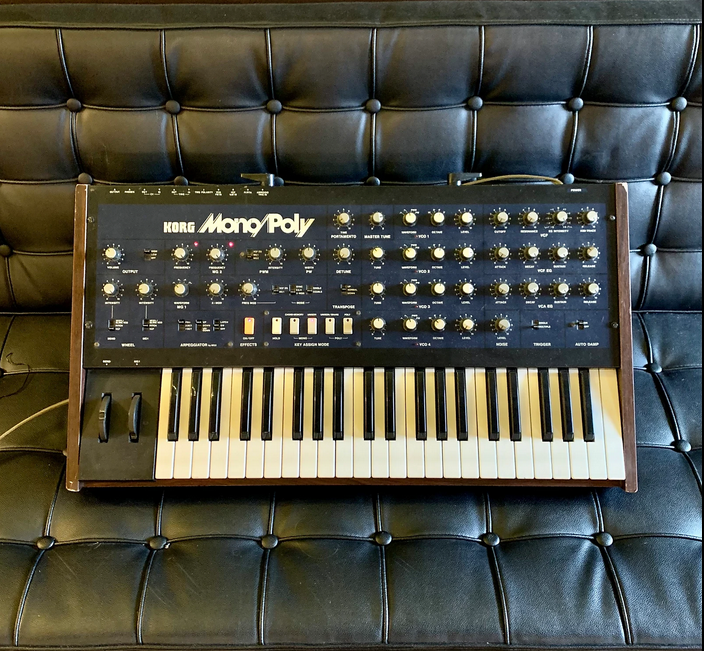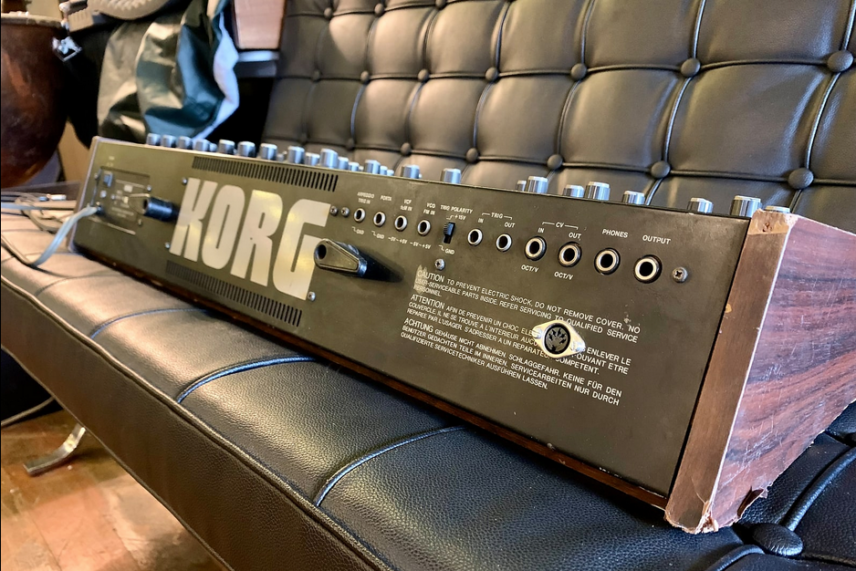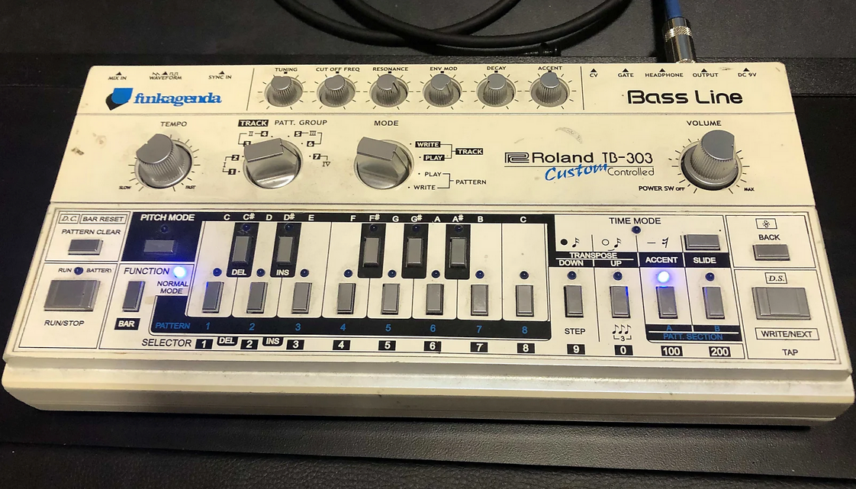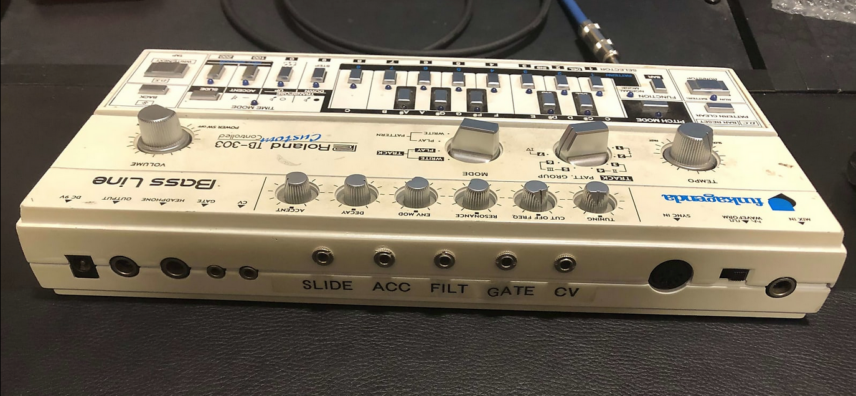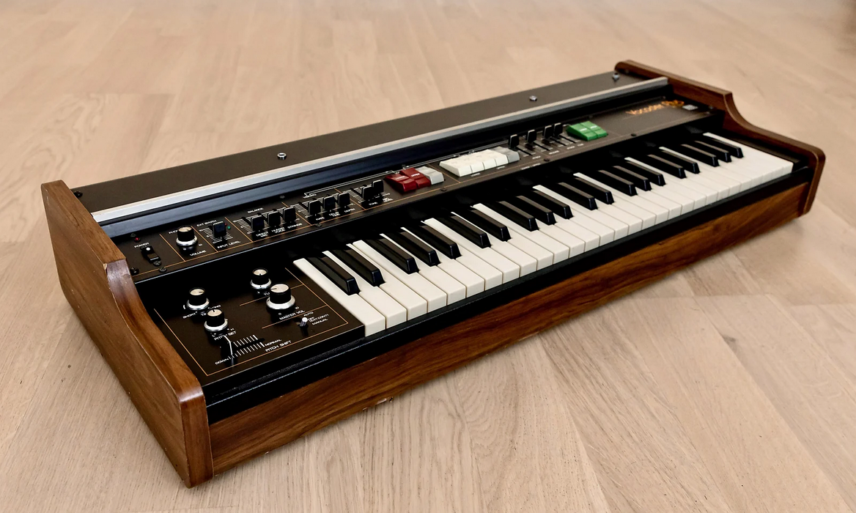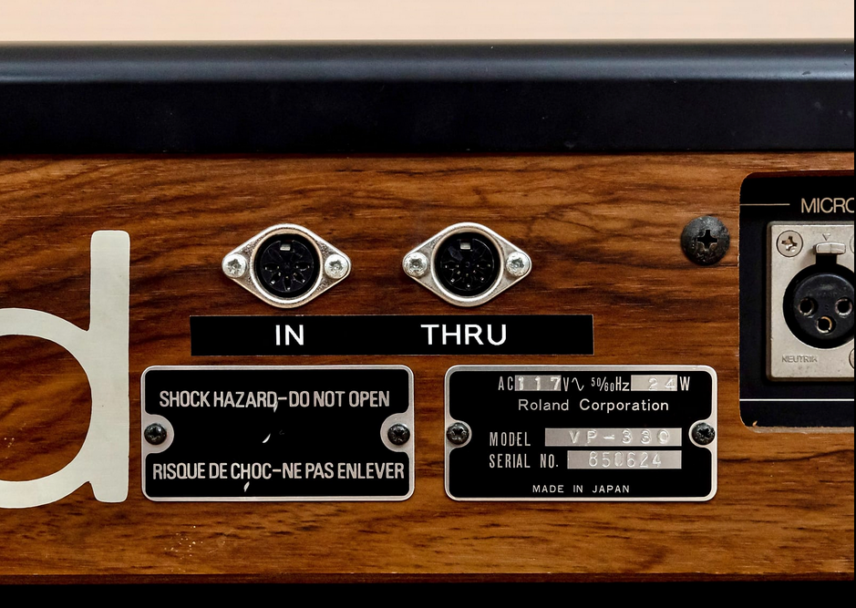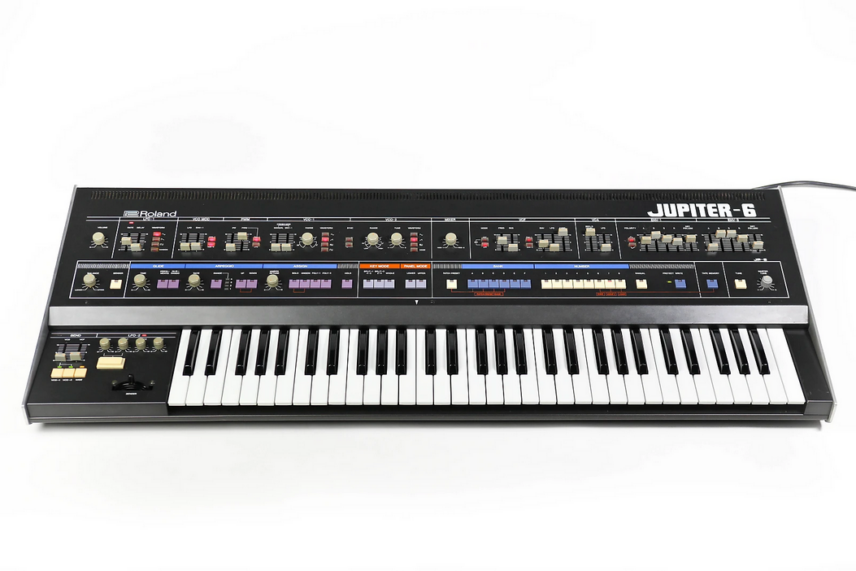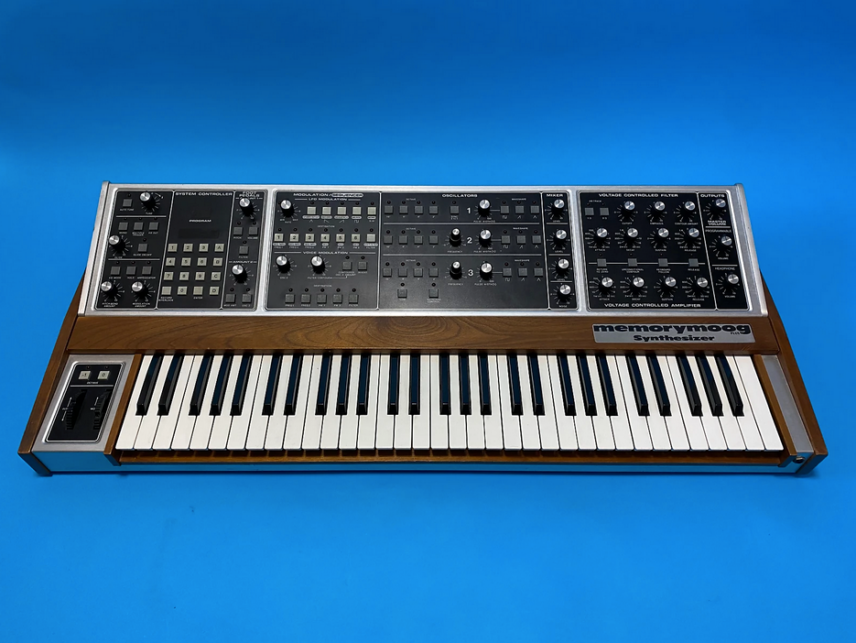Forget about cherry, mods are where it’s at. These 10 hot-rodded best modded synths on Reverb will make you wonder why more of your gear isn’t tricked out.
Almost from the very beginning, people have been modding synthesizers. The Moog Minimoog, the first really affordable synthesizer, was modded to the moon and back. Dedicated LFO, CV and later MIDI connectivity were all de rigueur for the discerning musician at the time. This desire to expand functionality and improve on existing instruments has only grown in popularity, with some mods now almost as famous as the original instrument (like the Devilfish version of the Roland TB-303, for example). Reverb, the online musical instrument retailer, has plenty of modded gear available. Here are 10 of the coolest modded synthesizers we found on the site listed in order of ascending price. If you had GAS (gear acquisition syndrome) for any of these in their original form, you might want to open a window in anticipation of seeing these modded versions as it’s going to get much worse.
Korg Polysix With Kiwisix MIDI Mod
Roland’s Juno-6 and 60 get all the love but Korg’s Polysix deserves some attention too. Released in 1981 as part of a larger wave of affordable polys, the single-VCO analog Polysix is six-voice polyphonic like its Roland counterpart. It has a lowpass filter, a single LFO, one ADSR envelope for both amplitude and filter, and an arpeggiator/sequencer combo.
So far, so Juno-like. It even has a chorus for beefing up the sound, although this is accompanied by a phaser and ensemble effect which can go a long way towards making the synth sound like a string machine. It also has a different sound to the Juno, making it less of a Juno replacement than a companion.
Because it was released in 1981, it doesn’t have MIDI. The Kiwisix mod adds more than just MIDI though. It includes a replacement circuit board for the one often damaged by battery leakage, an expanded memory section (from 32 to 512 patches), additional functionality for the arpeggiator and sequencer, and more. KiwiTechnics have been making mods for synths since 2008 and they definitely know what they’re doing. The Kiwisix Mod turns an already cool synth into a modern powerhouse.
The one on offer on Reverb is selling for $1,350 and comes with the original manual, patches and data cassette, although the seller does warn it needs “a bit of a tune.” Better factor oscillator calibration into your overall price.
Roland SH-101 Analogue Solutions Mod
Well, here’s a treat. A Roland SH-101 with an Analogue Solutions mod that’s been serviced by Soundgas. Reaching for the heart medicine yet?
Let’s start with the Roland part. The SH-101 is a monophonic analog synth from 1982. There’s only a single VCO but the addition of a selectable sub oscillator to beef up the saw, square and PWM (pulse width modulation) makes this a bass monster. The filter is legendary as well and perfectly capable of acid-style squelch. Throw in a 100-note step sequencer and you’re fully lysergic.
British synth lords Analogue Solutions did the mod. While the listing notes that there isn’t much information available about it online, you can see from the images that the mods offer additional voltages in and out, and “with some trial and error you’ll soon work it out,” as Soundgas say in the listing.
As it’s a Soundgas listing, the whole thing has been serviced by the UK-based sellers. They’re famous for their meticulousness so you know you’re getting good stuff. They even guarantee it. Bring it home for $1545.
Roland JX-3P With KIWI-3P Mod And KiwiTechnics Patch Editor
Roland’s 1983 JX-3P has always been something of a black sheep synth. It started life as a guitar synthesizer, it has DCOs (digitally controlled oscillators) and not VCOs but isn’t a Juno, and is considered by Roland to be part of the Jupiter line. It’s also an incredible instrument that doesn’t really sound like anything else around. Shiny and shimmering and just a little on the thin side, it’s great for pads, keys and more esoteric sounds.
Although it does have MIDI, it’s somewhat limited in terms of functionality. KiwiTechnics to the rescue. The New Zealand outfit’s Kiwi-3P upgrade increases the number of memory slots for sounds and the sequencer, adds MIDI CC support for all parameters, throws in an additional ADSR envelope and LFO, plus lots more.
This listing includes the now discontinued KiwiTechnics Patch Editor https://www.kiwitechnics.com/patcheditor.htm, which acts like a PG-200 programmer and brings parameter control to the front panel rather than through a single data slider.
The listing includes the original hard case and sells for $1,929.
Roland System 100 Model 101 With Mods
In 1975, Roland released the System 100, a semi-modular analog synthesizer divided into five component pieces. There was the Model 101, a monophonic beast of a synth with a single oscillator, the typical Roland filter configuration of a resonant lowpass circuit with non-resonant highpass, a single LFO and ADSR envelope, plus portamento, and of course plenty of patch points to pair it with the Model 102 expander, which stood behind it like a spaceship control panel.
This had the same features as the 101 but ditched the portamento for sample and hold and a ring modulator. Completing the system were the mixer (Model 103), step sequencer (Model 104) and speakers (Model 109). Complete sets are rarer than hen’s teeth, as they say, but the most common component, Model 101, often appears for sale.
The one here is listed as mint and appears to be in excellent physical condition. It’s also had some work done on the inside, including capacitor replacement, new transistors, diodes and voltage regulators on the PSU, new op amps, and general resoldering and cleaning. It also has a few mods that help it play well with modern modular gear, such as changing the keyboard to generate a C-based CV signal, plus altering the required gate voltage from Roland’s +10V to a friendlier +5V.
You want it, you need it? If you have $2,075 in the bank, it’s yours.
Yamaha CS-30 With Clock Input Mod
Chances are you know Yamaha for one of two vintage synthesizers, the DX7 or the CS-80. Like the other big two Japanese synth manufacturers (Roland and Korg), Yamaha released a number of monophonics in the 1970s. The mono branch of the CS line included the CS-5, CS-10, CS-15 and the CS-30, the tippy top and a real behemoth of a mono. It’s not semi-modular but it may as well be, with a flexible signal routing system enabled via switchable tabs. Check out this functionality: two VCOs, two multimode filters, two VCAs(!), three envelopes, and an LFO controllable via envelope. Talk about your modulation possibilities.
The CS-30 also had an eight-step analog sequencer with individual knobs for each step. The one on the docket here has a modification that allows you to control the clock of the sequencer with an external trigger – very handy for syncing with other gear.
The unit is in excellent condition and the seller says that “all keys, knobs, sliders, and sequencer are working properly without any faults.” At $2,613 it’s not cheap but it is an unusual instrument and something of a pinnacle for Japanese mono synths.
Korg Mono/Poly MIDI Mod
Released concurrently with the Polysix in 1981, Korg’s four-oscillator Mono/Poly was (is!) unusual in that it’s both a mono synth and a polyphonic in one (although in poly mode all the oscillators share one filter and VCA). Each oscillator can be adjusted and tuned separately, allowing for massive sounds when combined. There were a number of voice modes as well, including four-oscillator mono, paraphonic, unison modes and chord mode. Along with the filter, it had two envelopes, two LFOs, an arpeggiator, plus a number of oscillator sync and frequency modulation modes. A unique instrument, to be sure.
One thing the original instrument was missing was MIDI. The MIDI mod on the Mono/Poly here rectifies that, with the seller commenting that it’s “freshly serviced with MIDI in for interfacing with the rest of your gear.” They also mention that it “sounds absolutely stunning.”
The Mono/Poly is a real classic and can be yours for $3,595.
Roland TB-303 With Funkagenda Mod
Here’s an unusual one. The Roland TB-303 really needs no introduction. It’s a monophonic bassline synth with a sequencer. The filter is nuts. It sounds amazing. You know this. But what is unusual is this custom job. It’s a Roland TB-303 all right but instead of silver, it’s white. It’s also got blue LEDs to match the new screen printing, which includes the word “Custom” under Roland TB-303 as well as “funkagenda,” all in lowercase letters.
While the seller helpfully states that you can control this unit with a Kenton MIDI to CV device as well as modulate the slide, accent, and filter (“WOW,” he says) he doesn’t mention what – or who – Funkagenda is. Could this be the producer and DJ, Funkagenda? It looks like it, as the man himself shared a picture of this same 303 on his Instagram seven years ago.
If you need a CV-modded 303, love Funkagenda, or both, this $3,999 acid box is all you.
Roland Vocoder Plus VP-330 With MIDI Mod
Roland’s Vocoder Plus VP-330 was a special machine. Sure, it was a vocoder, but it had more. That Plus in the name referred to the string machine section of the instrument, which combined the usual (but lovely) strings with a human voice choral sound. You could combine them all – vocoder with external instrument, strings and voice – and slather it in Roland’s BBD (bucket brigade delay) ensemble effect. If there’s a heaven above, the VP-330 is surely the instrument of choice for the house band.
The unit listed here is in excellent condition, according to the seller, and is in “perfect working order” after getting a checkup from the seller’s in-house techs. It looks gorgeous as well with only a few dings on the wood paneling. It also has a MIDI mod installed so you can control it from your DAW.
Top stuff for $3,999.99.
Roland Jupiter-6 With Europa Mod
Roland’s 1983 Jupiter-6 has always suffered from being not a Jupiter-8. This is unfair, as the little brother to the famous polysynth has a different sound, one that is arguably more suited to dance music than the 8’s synth-pop. With six voices, two VCOs per voice, two LFOs, a switchable 24dB/12dB lowpass filter with a dedicated envelope, an ADSR for amplitude, plus an arpeggiator and MIDI, it’s a well-stocked instrument for the time.
Synthcom’s Europa mod added additional arpeggiator modes and sync sources, MIDI CC send and receive, patches stored to onboard flash memory, extra voice reassignment modes, circular oscillator sync with VCO 1 and 2 affecting each other, and lots more.
The Jupiter-6 on hand is being offered by the US-based synth repair outfit Syntaur, so you know it’s in great working order. They’ll even throw in a free Syntaur T-shirt once your payment of $9,500 has cleared.
Moog Memorymoog Plus With Stereo Pan And Aftertouch Mod
We mentioned that Moog’s Minimoog was one of the first synthesizers to be commonly modified. This trend also included the Memorymoog, the company’s six-voice polyphonic analog monster and the last poly to be released by the company before they went belly up in 1987. Often described as six Minimoogs in one, it’s a three-oscillator instrument with a 24dB/octave Ladder filter plus envelope and LFO. Set it to unison mode to hear all 18 Moog oscillators stacked on top of each other. Release the beast.
The Memorymoog came out just on the cusp of MIDI so some instruments were factory retrofitted with the new connectivity protocol plus an additional sequencer and rebadged as the Memorymoog Plus. That’s what’s up for grabs here. The seller promises that after purchase, they’ll give it a full going over and add stereo pan and aftertouch.
At a mouthwatering $15,245 it’s no impulse purchase but it might be worth it to have the power of all those oscillators at your fingertips.
*Attack Magazine is supported by its audience. When you purchase through links on our site, we may earn an affiliate commission. Learn more.

